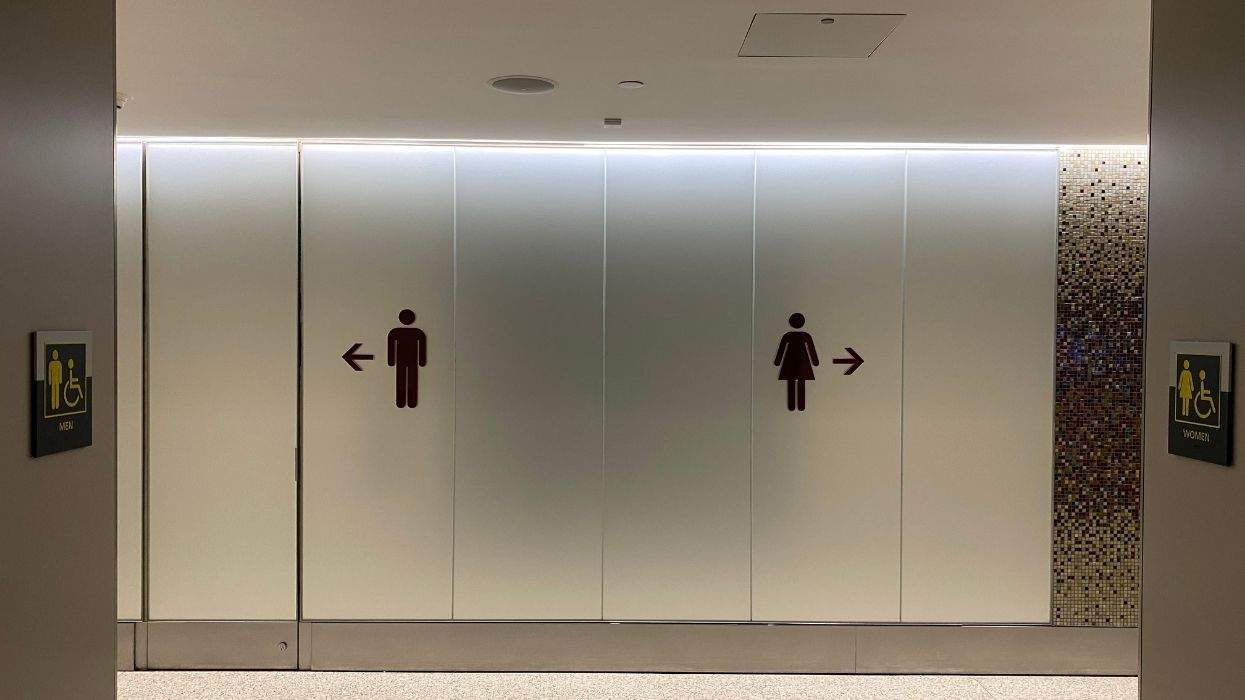Following reports that lawmakers are considering stripping "don't ask, don't tell" repeal from the Defense funding bill to which it is currently attached, a top White House official issued a statement Monday evening saying the administration does not approve of any attempt to remove the repeal measure from the legislation.
"The White House opposes any effort to strip 'Don't Ask, Don't Tell' from the National Defense Authorization Act," said Dan Pfeiffer, White House communications director.
The Advocate reported Sunday that Sen. Carl Levin, chairman of the Senate Armed Services Committee, was exploring the possibility of offering a scaled-down version of the defense funding bill that scraps the repeal measure, and a spokesperson for Sen. John McCain, the ranking Republican on the committee, confirmed the discussions to The Wall Street Journal.
A spokeswoman for Levin said Monday afternoon that the senator has been discussing with McCain the path forward on the National Defense Authorization Act, but she did not confirm whether the two were considering a version of the legislation that dropped the repeal provision.
"Senator Levin has been discussing with the Defense Department when the report relating to the 'don't ask, don't tell' policy -- due to the Secretary of Defense on December 1 -- will be made available to Congress and the public, and he has also been discussing with Senator McCain how to proceed," said Tara Andringa, spokeswoman for Levin.
While traveling in Australia over the weekend, Defense secretary Robert Gates urged Congress to pass the bill with the repeal measure before the end of the year.
Aubrey Sarvis, executive director of the Servicemembers Legal Defense Network, called the remarks "extraordinary" since Gates has consistently asked lawmakers to wait until the Defense Department's study of repeal is issued in December.
"This is the first time Secretary Gates has been on the record and calling for passage before the Pentagon working group report comes out," Sarvis said. "I think the secretary is generally aware of the recommendations that are going to be coming from General [Carter] Ham and the working group."
A spokesman for Senate majority leader Harry Reid echoed Gates's comments Monday, saying Reid "strongly supports" repeal but adding that Senate Republicans stood in the way of progress. Democrats failed to garner the 60 votes necessary to advance the defense bill to debate in September after Republicans mounted a successful filibuster.
"The senator needs Republicans to at least agree to have a debate on this issue -- a debate he firmly believes the Senate should have," said Jim Manley, Reid's spokesman. "It's unfortunate that Senator McCain -- who previously expressed support for the repeal of this law -- and other Senate Republicans are ignoring the advice of our military leaders to reverse this discriminatory policy that not only harms our men and women in uniform, but also our national security."
But one repeal advocate challenged the remarks and suggested Reid had provoked the GOP leadership by limiting the number of amendments that could be offered to the NDAA.
"Senate majority leader Reid's office is simply ignoring the well-established fact that we indeed do have the votes to proceed on defense authorization, including Republican votes, if he would just bring the bill up under normal procedural conditions," said Alex Nicholson, executive director of the gay veterans group Servicemembers United. "If he firmly believes the Senate should have this debate this year, then he will bring the bill back up next week and allow us to move forward on NDAA and DADT repeal."
Reid has already left the NDAA out of his lineup of three bills to be considered during the week of November 15, meaning consideration of the legislation wouldn't come up, if at all, until senators return from the Thanksgiving holiday on November 29. Reid has also set a target date of December 10 to adjourn for the year, which would leave just two weeks to complete the defense bill - a near impossibility since debate usually takes two weeks and reconciling the House and Senate versions of the bill often takes another two weeks.
President Barack Obama has said his priorities for the lame-duck session include ratifying the Strategic Arms Reduction Treaty and extending President Bush's tax cuts for middle-class Americans, both of which could require lengthy debate.















Charlie Kirk DID say stoning gay people was the 'perfect law' — and these other heinous quotes
These are some of his worst comments about LGBTQ+ people made by Charlie Kirk.